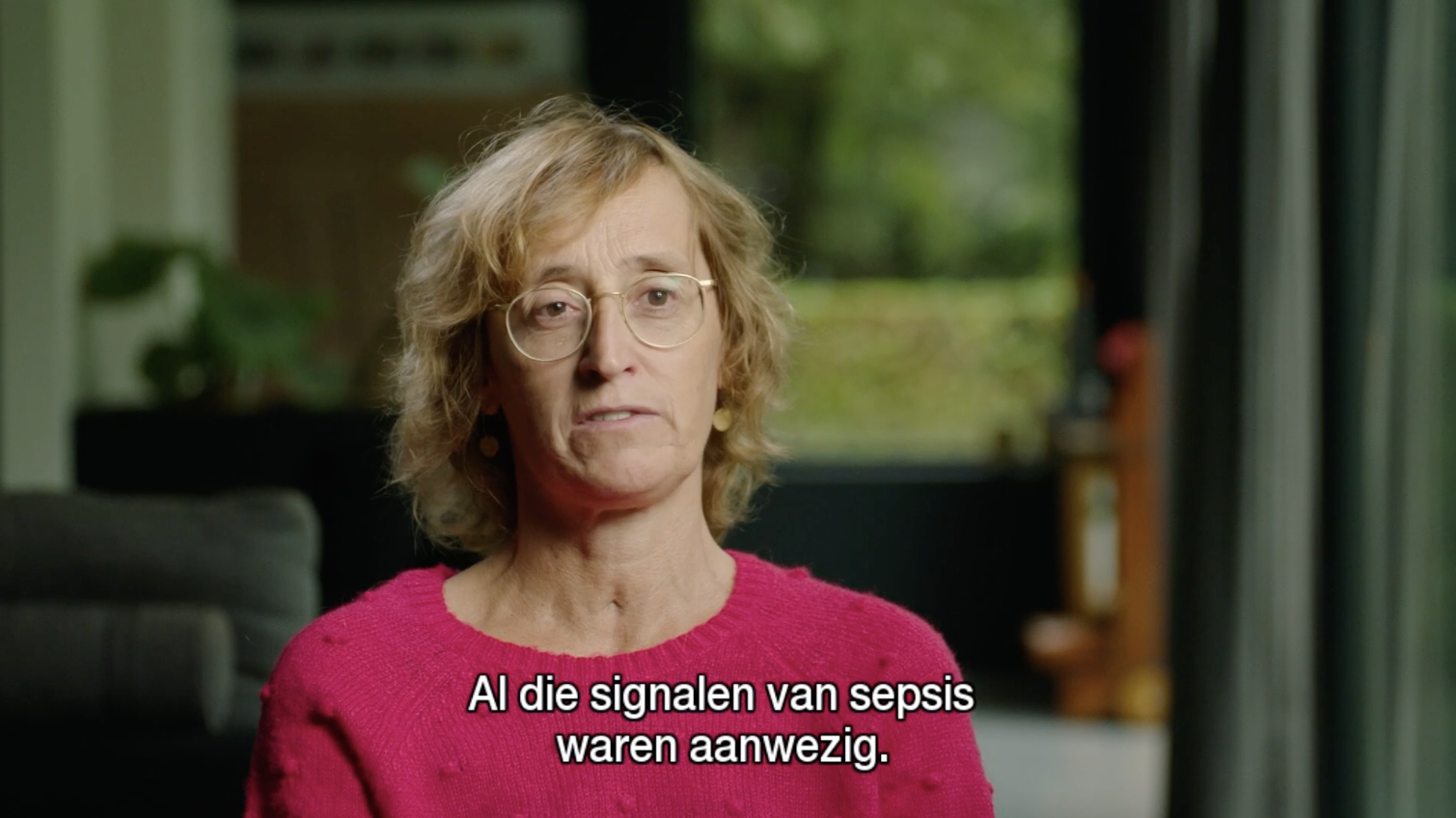Ilse Malfait, Championing the Fight Against Sepsis in Belgium
Ilse Malfait’s story is one of incredible human strengths, resilience, and perseverance. In May 2020, Ilse's life took an unexpected turn when she discovered a lump in her right breast. The initial plan involved chemotherapy, breast-conserving surgery, and radiation to combat the aggressive tumor. However, fate had a different agenda. "Four days after my first chemo treatment, severe stomach pain gripped me at night, leading to a rush to the hospital," Ilse recounts.
Her medical journey had unforeseen complications. "A few months earlier, I faced intestinal problems, and now it turned out I had an intestinal perforation. The emergency operation went well, but what followed was beyond anyone's expectations," she shares. The evening after the intestinal operation, Ilse had so much stomach pain that she thought she was going to die. Increasing the pain medication did not help. Breathing problems, nausea, very low blood pressure, an increased heart rate, fever, and fainting: her condition deteriorated so much that she ended up in intensive care.
Ilse encountered septic shock, a diagnosis that surfaced only thirty hours after the first symptoms, bringing significant consequences. Originally slated for a week, her hospital stay stretched into a staggering 487 days, encompassing intensive care, medical oncology, and a year in the rehabilitation center. "I don't remember anything for the five or six weeks after the operation; I was in a coma," Ilse reflects. Transported to a university hospital in Ghent, her survival chances appeared slim. However, the dedication of the intensive care team saved her life. Unfortunately, the aftermath of sepsis and the medication led to insufficient blood flow, resulting in the amputation of her fingers and lower legs.
The initial four months post-sepsis are defined by Ilse as sheer survival. She faced excruciating pain, compounded by the inability to receive necessary breast cancer treatment due to her weakened heart. The sepsis forced a change in plans – chemotherapy was halted, and a breast-conserving procedure became impossible, ultimately leading to a complete mastectomy. A breathing tube deprived her of speech, food, and drink. The removal of the tube marked a turning point, allowing Ilse to reconnect with her family, express gratitude to the medical team, and savor the simple joys of conversation and meals.
The path to recovery was daunting, with intensive rehabilitation paving the way for Ilse to walk again with prostheses. The transition from a wheelchair to walking was a monumental feat, marked by challenges such as pain and difficulty reaching household items.
As Ilse's range expanded gradually, she faced the delicate balance of not overexerting herself, as stepping caused wounds on the stumps of her legs. Phantom pain in her legs, waking her up at 4 am every night, adds to the ongoing challenges. The struggle continues, but Ilse remains determined to push through. Ilse's cancer check-ups since then have been positive, and she has been declared cancer-free. However, lingering uncertainties persist due to the premature cessation of her chemotherapy.
Ilse Malfait at the Central World Sepsis Day Event in Berlin, 12 September 2023.
On 12 September 2023, Ilse spoke at the Central World Sepsis Day Event in Berlin, where she told her story to an international audience and called the Belgian government to action.
In November 2023, Ilse was featured in the documentary “Kwaad bloed” (Bad Blood) broadcasted by Belgian TV channel VRT. This documentary brought sepsis to the attention of the wider public and triggered a political debate, leading Belgian Minister for Health Frank Vandenbroucke to commission a report from Prof. Erika Vlieghe for a National Plan on Sepsis.
“Kwad bloed”, Pano, VRT.
This was a major success as only a few countries worldwide have implemented the World Health Assembly Resolution 70.7 on Sepsis, urging UN member states to integrate sepsis into their national health systems.
Ilse encapsulated her journey also in the book ‘Elk uur telt'‘ (Every Hour Counts), emphasizing the crucial need for swift intervention in septic shock.
Now, Ilse actively contributes to the cause by co-founding the non-profit organization SEPSIBEL, uniting sepsis survivors like Michael Clarke, whose story was already featured on our website. Their mission involves establishing a National Sepsis Plan with guidelines for early diagnosis and treatment. Ilse, along with the medical council, including Professor Erika Vlieghe and Professor Jan De Waele, President-Elect of the European Society of Intensive Care Medicine (ESICM), and collaborating organizations, endeavors to raise awareness among healthcare professionals and the general population about the symptoms and dangers of sepsis.
GSA founder Prof. Konrad Reinhart and GSA CEO Mariam Jashi with Ilse Malfait in Berlin, 12 September 2023.
Physically and mentally tired after three challenging years, Ilse remains resilient, driven by the urgency to implement the sepsis plan in Belgium. Her advocacy seeks to empower not only medical professionals but also the public, ensuring that the devastating impact of sepsis is met with prompt and informed responses.
The Global Sepsis Alliance is proud of the fight and the incredible achievements of Ilse Malfait. She is a true hero who can inspire millions of survivors and families affected by sepsis worldwide!
The GSA stands ready to continuously support Ilse’s advocacy efforts and provide any necessary assistance to Belgian colleagues as they embark on developing the National Sepsis Plan.




